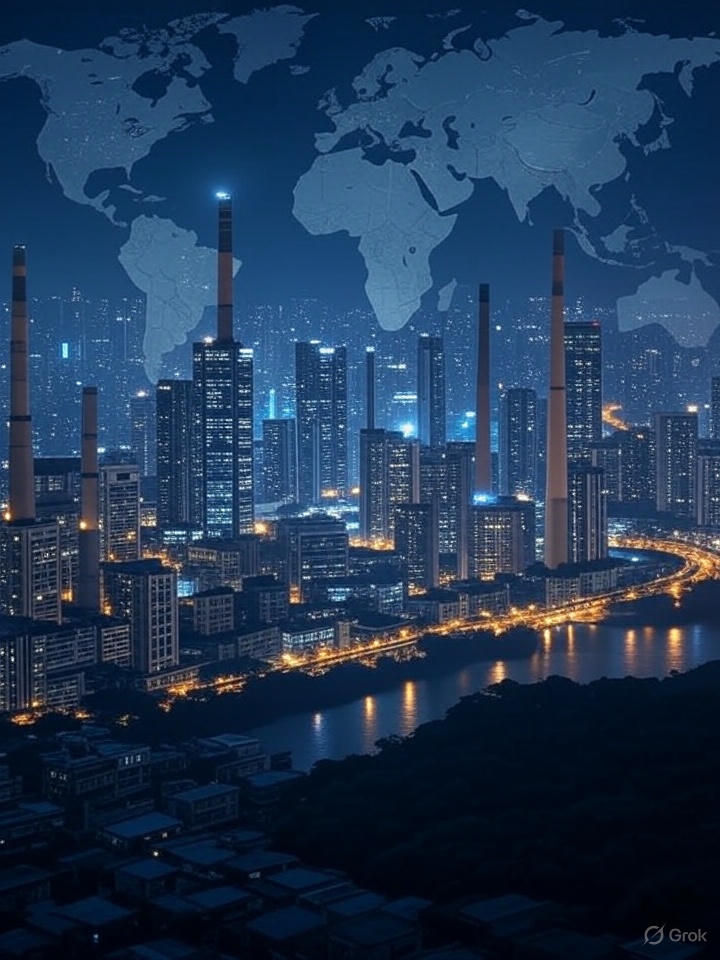Shocking Animal Migrations: How Climate Change Is Rewriting Nature’s Oldest Journeys
- thebrink2028
- Jun 13
- 3 min read

Researchers made a startling discovery: king cobras, typically dwellers of steamy tropical forests, were spotted slithering through the chilly Himalayan foothills. This unprecedented sighting is not an isolated quirk but a stark symbol of a global crisis. Climate change is rewriting the ancient migration routes of animals worldwide, from tiny insects to massive marine predators. These shifts, driven by warming temperatures, altered rainfall, and vanishing habitats, are disrupting nature’s oldest journeys, with profound consequences for ecosystems and human societies alike.
The Science of Migration and Climate Change
Animal migration is a remarkable phenomenon, honed by millions of years of evolution to optimize breeding, feeding, and survival. Species like monarch butterflies, humpback whales, and Arctic terns rely on precise environmental cues, temperature, daylight, and even Earth’s magnetic fields, to time and navigate their journeys. However, climate change is throwing these cues into chaos. Rising global temperatures, shifting rainfall patterns, melting ice caps, and habitat loss are disrupting the delicate balance that guides migrations. Many species are adapting by moving poleward, climbing to higher altitudes, or shifting the timing of their journeys. Yet, the rapid pace of climate change often outstrips their ability to adjust, leaving many struggling to survive in unfamiliar landscapes.
Shocking Examples of Unusual Migrations
The king cobra’s appearance in the Himalayas, a region once too cold for tropical reptiles, shows how warming climates are pushing species into new territories. In the oceans, great white sharks are venturing into higher latitudes, with sightings reported as far north as Alaska, while juvenile walleye pollock are expanding into Arctic waters, disrupting marine ecosystems. Migratory birds like Arctic terns and bar-tailed godwits, known for their epic transcontinental flights, now face degrading stopover habitats due to sea-level rise and ocean acidification, threatening their survival. On land, caribou, moose, and polar bears are altering migration distances and timing, often wandering closer to human settlements and sparking conflicts. Even smaller creatures, like pikas climbing higher up mountain slopes or monarch butterflies shifting their routes and schedules, are feeling the strain of a warming world.
The Ecological and Human Implications
Disrupted migrations ripple through ecosystems, throwing predator-prey relationships, pollination, nutrient cycles, and biodiversity into disarray. New species interactions can lead to unexpected consequences, such as invasive species outcompeting natives or habitat mismatches that leave animals stranded without food or shelter. For human communities, the impacts are equally significant. Economies reliant on migratory species, whether through ecotourism, like whale watching, or fisheries, like salmon runs, face uncertainty. Cultural traditions tied to species like caribou or monarch butterflies are at risk. As animals move into new areas, human-wildlife conflicts are rising, with polar bears raiding villages or moose encroaching on farmland, creating challenges for both conservation and human safety.
The Future Outlook and Urgency
While some species show remarkable adaptability, many face extinction if climate change continues unchecked. Urgent action is needed to protect critical habitats, establish wildlife corridors, reduce carbon emissions, and strengthen global climate initiatives. Monitoring animal migrations provides a critical window into the health of ecosystems and the pace of climate change. Preserving these ancient journeys is not just about saving wildlife, it’s about maintaining the delicate balance of life on Earth.
The shocking shifts in animal migrations are a caution. From king cobras in the Himalayas to great white sharks in Arctic waters, these changes are both a symptom and a signal of the profound transformations driven by climate change. They demand our immediate attention and sustained global action to protect the intricate web of life that sustains us all.
-Chetan Desai (chedesai@gmail.com)


